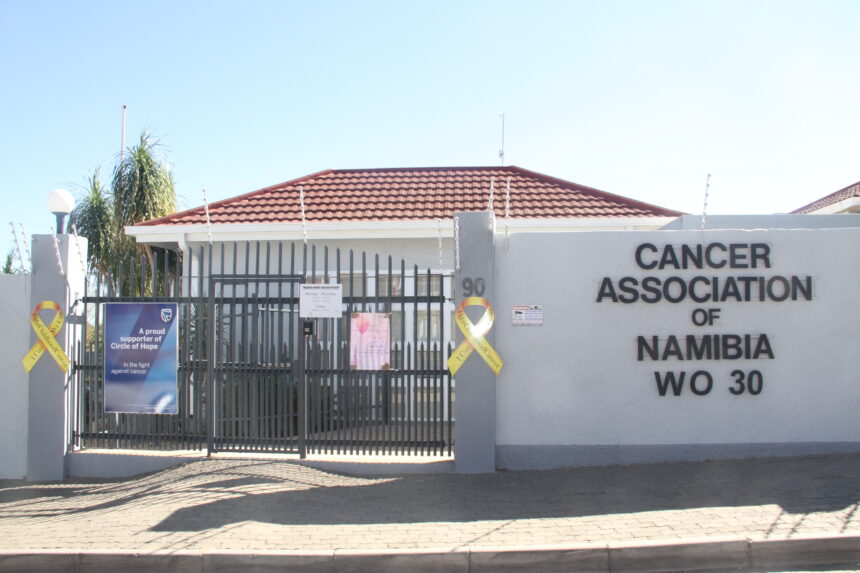Chelva Wells
The Cancer Association of Namibia (CAN) spent N$421 000 on biopsy needles, training, referral mammogrames and educational materials to support the Namibia Breast Clinic Initiative in 2024.
This investment was aimed at ensuring that women at risk of breast cancer could access early diagnoses, a crucial step in improving survival rates.
CAN CEO Rolf Hansen on Monday said early detection can significantly increase treatment options.
However, financial barriers often prevent many women from seeking timely medical care.
Without access to these resources, many women seek treatment only once the cancer has reached an advanced stage.
This reduces the chances of survival.
“ThefundsallocatedbyCANhelped to provide necessary diagnostic tools and resources for women, ensuring they received timely screenings and interventions. CAN’s efforts were focused on addressing the financial gap that many patients face when it comes to essential medical services, such as biopsies and mammograms. Early diagnosis is critical in detecting breast cancer at an early stage, allowing for more effective treatment and better outcomes,” Hansen said.
He stated that despite the positive impact of the Namibia Breast Clinic Initiative, sustaining and expanding these services require ongoing financial support.
For 2025, CAN has budgeted N$500 000 to continue providing biopsy needles, healthcare training and additional diagnostic support.
With rising costs and increasing demand, securing further funding is essential for ensuring that more women can benefit from these life-saving services.
He noted that in addition to supporting early diagnosis, CAN has been actively involved in policy advocacy to improve cancer care in Namibia.
In collaboration with the Ministry of Health and Social Services (MoHSS) and Roche, CAN worked on a revised National Cancer Control Plan.
This plan aims to decentralise cancer care by creating regional treatment centres outside Windhoek.
“This move would alleviate the pressure on centralised facilities, reduce travel costs and improve access to treatment for patients from rural areas,” he said.
The revised policy emphasises the need for increased investment in cancer prevention, early detection and training for healthcare professionals.
Expanding training for medical staff in regional hospitals is critical for strengthening Namibia’s overall healthcare system and reducing dependence on specialised facilities in the capital, Hansen said.
“At CAN, we continue to advocate for government support to ensure the successful implementation of the National Cancer Control Plan. Achieving these goals will require collaboration between government agencies, corporate donors and the public to strengthen cancer care across the country,” he said.
Numbers
The Cancer Association screened 2 541 Namibians for breast, cervical and prostate cancers in 2024.
Of these, 2 210 women received screenings for breast and cervical cancer, with 66 requiring further medical intervention.
An additional 39 were diagnosed with cervical cancer lesions.
A total of 227 women were treated for sexually transmitted infections.
Among men, 331 underwent Prostate-Specific Antigen rapid tests for prostate cancer, leading to nine positive referrals.
To buttress this point, Hansen stated that early detection plays a critical role in improving cancer survival rates.
However, many Namibians, particularly in rural areas, face challenges in accessing screening services.
Hansen said CAN continues to bridge this gap through its National Cancer Outreach Programme.
This is where they provide free cancer screenings across the country.
However, financial constraints have led to significant reductions in outreach activities.
“These numbers highlight the importance of early detection, yet the sustainability of the programme is in question. Budget constraints forced CAN to scale down its outreach activities, transitioning to biannual visits to major towns, rather than regular screenings in remote areas. This change limits access for those living in rural communities, where healthcare services are already scarce,” he said.
Moreover, for 2025, the budget for the outreach programme is projected at N$654 265, an increase from the N$581 356 spent in 2024.
Risingcostsofmedicalconsumables and screening equipment pose a challenge.
Without additional financial support, the programme may not reach as many people as needed.
“The reduction in screening programmes raises concerns about the long-term impact on cancer detection and treatment in Namibia. Late-stage cancer diagnoses often lead to more expensive treatments, lower survival rates, and increased pressure on the healthcare system. Expanding screening services is crucial to reversing this trend,” he said.
Hansen added that CAN continues to seek funding from government bodies, corporate sponsors and the public to sustain and expand its screening efforts and investment in early detection programmes.
This not only improves patient outcomes, but also reduces long-term healthcare costs by detecting cancer in its early stages. -Nampa



